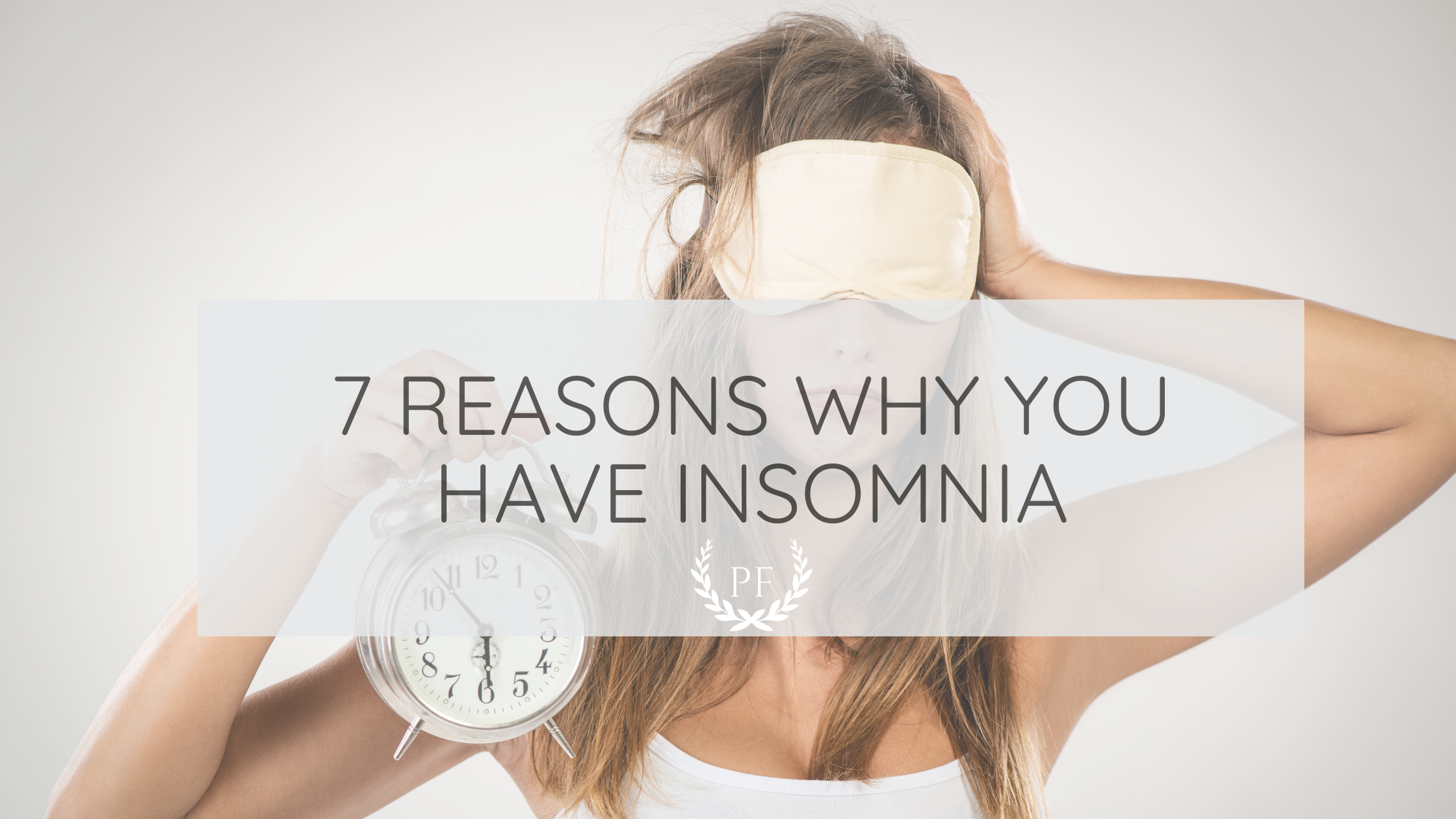7 Reasons why you have insomnia
Insomnia is a sleep disorder that can make it difficult to fall or stay asleep, or it can cause you to feel tired after a night's sleep or wake up too early. Insomnia can affect your mood, energy levels, performance at work, health, and quality of life. Many adults will at some point experience long-term or short-term insomnia. This post explains seven reasons why you might have insomnia.
Your internal body clock is confused.
You have a 24-hour wake-sleep cycle, also known as the Circadian Rhythm or internal clock. As it gets darker at night, your body produces melatonin which helps you to fall and stay asleep. The melatonin decrease with exposure to light. Your internal clock can be disrupted by:
Jet Lag
Working night shifts
Poor sleep hygiene, such as a chaotic sleep schedule, excessive caffeine, alcohol intake, lack of exercise, or exposure to the blue light of an electronic device before bed. Click here to read more about sleep hygiene.
Staying up late and sleeping in the morning. This affects almost 16% of our teens and is also known as Delayed Sleep Phase Disorder.
Advanced Sleep Phase Disorder, a rare condition that makes people tired early in the evening and wake early in the morning. Those normally affected are middle age and older.
Non-24 hours Sleep-Wake Disorder often occurs in the blind, unable to receive light-based cues of whether it is day or night, and the internal clock gets disrupted.
Irregular Sleep-Wake Rythm Disorder, where people have no consistent sleep pattern. This is often due to a psychiatric condition, dementia, or a traumatic brain injury that affects the hypothalamus's functioning, responsible for the body’s internal clock.
You have a medical illness.
Talk to your doctor about sleep-related problems and rule out any underlying conditions that can contribute to sleep difficulties. They may refer you for a sleep study to determine if you have any sleep-related disorders such as obstructive sleep apnea, central sleep apnea, or REM sleep behavior disorder.
Your medication is affecting your sleep.
Also, talk to your doctor about your prescription medicine, as some medications can cause insomnia. For instance, Zoloft (Sertraline), prescribed for PTSD and depression, can cause insomnia in certain cases. Click here to learn more about common medications that can cause sleep difficulties. As a reminder, talk to your doctor before you make any changes to your medicine.
You are stressed.
When you are under stress, your bodies release stress hormones such as cortisol and adrenaline, making you alert during stressful situations. If you are exposed to high-stress levels, these hormones can disrupt the body’s internal clock. To learn more about stress management, click here.
Caffeine, alcohol, and nicotine.
Reduce, or better yet, avoid these three culprits, and you might see drastic changes in your quality of sleep. Caffeine is a stimulant and can affect your sleep; try to avoid caffeine later in the day. Replace caffeine with non-caffeinated herbal teas Alcohol makes it easier to fall asleep, but it disrupts your sleep later in the night, and you will feel tired the next day. Use alcohol moderately and avoid it late at night. Smoking also disrupts sleep and is associated with various sleep difficulties; it’s best to avoid it.
It runs in your family.
Although more research is needed, insomnia can be genetic, and you might be more vulnerable to insomnia based on your family history. Other factors that can contribute to insomnia are age and sex. Women are twice as likely to experience insomnia as men, and older adults are more likely to experience insomnia.
Trauma or other mental health disorders.
Mental health disorders are often associated with sleep disorders such as PTSD, depression, anxiety, and bipolar. It is also common in children with a diagnosis of ADHD. Trouble sleeping and depression often go hand in hand, and 65% to 90% of people with depression have insomnia. Studies have shown insomnia can increase your risk for depression but improves when depression is treated.
This post covers seven reasons why you might have insomnia. If you struggle to sleep, incorporate more sleep hygiene practices, and if the problem persists, talk to your medical health provider.
Information on this website is provided for information purposes only and is not intended as a substitute for the advice provided by a mental health therapist or other healthcare professional. No information offered here should be interpreted as a diagnosis of any disorder, nor an attempt to treat or prevent or cure any disease or condition.






